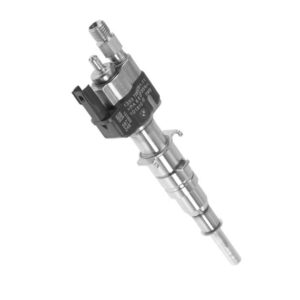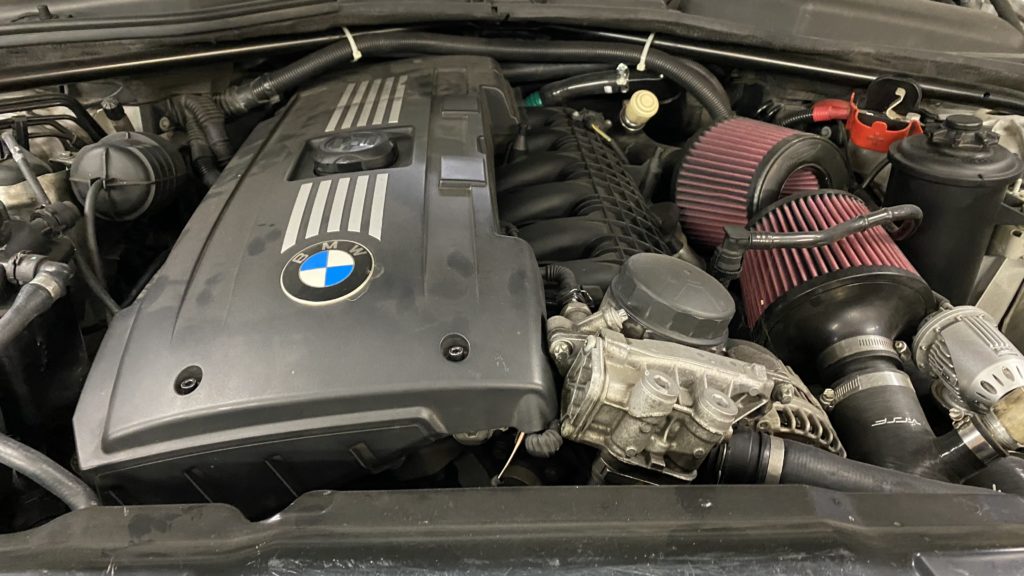Blog
BMW E90 Common Problems
Following up the legendary E46 chassis was a tall order for BMW. In 2005, they released the E90, a brand new, built from the ground-up 3-series that offered a wide variety of engines, body styles, and performance variants during its run until 2013.
E90 BMW Overview
The E90 was a solid platform that had something for everyone. Fuel-saving diesels, high-performance V8s, and BMW’s first gasoline-powered turbocharged motor, the N54. Additionally, E90 3-Series cars were available in rear-wheel or all-wheel drive and could be had as a sedan, wagon (E91), coupe (E92), or convertible (E93).
Common Mechanical Issues
E90 BMWs were a solid platform overall, but like every car, they had some common problems. Given their age, many of these issues are more prevalent now than they were. If you are thinking about picking up an E90 second-hand, these are the things you should be on the lookout for.
Oil Leaks
There are three major areas where E90 BMWs leak oil. These problems plague all six-cylinder motors from this era. The oil pans, oil filter housings, and valve cover gaskets will leak if the car is not maintained properly.
A leaking oil filter housing can lead to serious issues if left unaddressed. The housings are positioned on top of the engine on these inline-six motors, just above the serpentine belt. As oil leaks out, it coats the belt and surrounding components. This causes premature wear, which will eventually cause the serpentine belt to slip off the pully. If that wasn’t bad enough, the belt can get sucked through the front crank seal into the crankcase. If this happens, severe engine damage can occur.
Regular oil changes every 5000 miles, and careful inspection of leak-prone components at every service will allow you to stay ahead of any serious problems that can result.
Ignition Coils Problems
Ignition coils, which sit on top of the spark plug, fail frequently on E90 BMWs. A failed ignition coil will cause a misfire. An easy way to diagnose a failed coil is to switch the coil to a different cylinder, and if the misfire follows, it’s likely bad (this test only works if you have the software to monitor the locations of misfires).
VANOS Solenoid Issues
VANOS is BMW’s variable valve timing system that is operated by two solenoids. Oil sludge deposits can inhibit the function of these solenoids. When the VANOS system is not working properly, you may experience reduced engine power and get a check engine light.
Issues Specific to Turbocharged E90s
The E90 generation saw BMW release its first production turbocharged gasoline engine, the N54. This engine had some unique issues, and because of its wide distribution in the E90 generation, we have grouped these issues separately. Note that more universal issues like oil leaks and ignition coil issues are also prevalent on the N54.
Fuel Injector Failure
E90-era BMWs with the N54 turbocharged inline-six engine utilized a Piezo fuel injector. Piezo (short for piezoelectric), is a phenomenon that occurs when electricity applied to a crystalline material causes small amounts of expansion. Piezo injectors utilize this phenomenon to precisely control fuel injection. While this technology was far more precise than standard injectors used on other motors of that era, they were extremely failure-prone. When these injectors fail, they typically result in massive over-fueling, leading to rich fault codes, misfires, and when left uncorrected, damage to catalytic converters.

Turbo Failure
The N54 engine was BMW’s first production turbocharged engine. This motor is popular among enthusiasts due to its potential to make big power (credit to factory-forged internals), but in stock form, they are prone to problems. The turbos on these engines suffer from wastegate failure. The wastegates themselves will begin to emit a noticeable rattle on startup. As time goes on, they will not remain shut, triggering a low boost fault. The wastegates are non-serviceable, meaning the entire turbocharger unit needs to be replaced.
Carbon Buildup
The N54, like many direct-injected turbocharged engines, suffers from carbon buildup. Carbon deposits accumulate on the backside of the intake valves, eventually causing performance issues. Walnut blasting, which involves blowing abrasive walnut shells into each intake port when the valves are closed, is a popular method for carbon cleaning on these engines
High-Pressure Fuel Pump
HPFP (high-pressure fuel pump) failure is a common issue on E90 BMWs. The seals inside the pump can go bad, resulting in pump failure. When experiencing this issue, your vehicle may experience trouble starting or staying running, as well as decreased fuel economy.

Diesel Specific Issues
E90 BMWs were available with diesel engines as well as gas powerplants. These cars, such as the 335d offered better fuel economy than their gasoline counterparts, while still boasting impressive power numbers.
Emissions System Issues
While the diesel engines themselves were fairly reliable, the emissions systems in the exhaust were extremely failure-prone, so much so that BMW offered extended warranties on many of the components.
DEF/SCR Tank
Diesel exhaust fluid (DEF) is injected into the exhaust, causing a reaction that reduces the output of NOx gasses from the tailpipe. The DEF sensors in the DEF tank are prone to failure and are non-serviceable, meaning the entire tank needs to be replaced.
DPF Filter
The diesel particulate filter, which is responsible for filtering out large particulate matter from the exhaust, can get clogged. This can lead to symptoms like loss of power, lights on the dash, and excessive smoke.
EGR System
The EGR system itself is not particularly failure-prone, but excessive soot buildup can cause issues over time.
E90 Diesel Repair is Expensive and Unavoidable
Repairing these failed components can be extremely expensive, and not fixing them can prevent you from passing an emissions test.
Non-Mechanical Issues
E90 BMWs had some problems not related to the engine or drivetrain.
Window Regulators
Failed or broken window regulators plagued the E90 era, leading to issues like stuck or out-of-track windows.
Peeling Interior
In the early E90s, interior plastics tended to peel off around the door handles, steering wheel, and center console. This issue mainly affected cars with light color interiors.
Passenger Seat Occupancy Sensor
The sensors in the passenger seat can fail, causing an airbag light to illuminate on the dash. Replacing the sensors is the only permanent fix to this issue.
Get Your E90 Serviced at Alex’s Autohaus
Our team of factory-trained, ASE-Certified European technicians has the skills and experience to service your E90, whether you are the first owner or just picked one up second hand. We are the premier independent European auto shop in the Salt Lake City area. Give us a call or schedule an appointment online today!

Nationwide Warranty
3 YEAR, 36,000 MILE
Alex’s Autohaus offers all customers the Bosch and Tech-Net Peace of Mind Nationwide Warranty. The 36 month/36,000 mile warranty is honored at over 10,000 service centers across the country. Our 36,000 mile warranty is the best in the business!
Read More Schedule Now